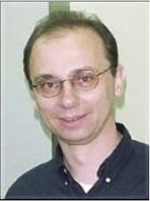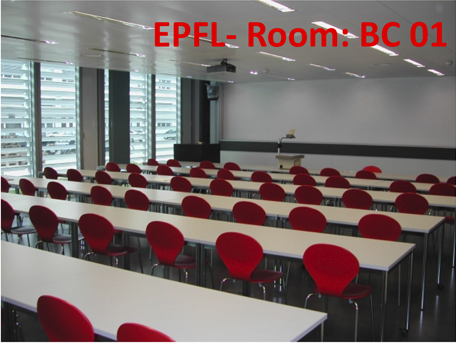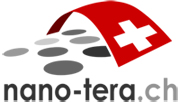Go to
George Stamoulis
 Professor
Professor
Department of Computer & Communication Engineering
University of Thessaly, Volos, Greece
Are guardbanding and overdesign viable under 20nm? The case of voltage integrity
As we move into the sub-20nm processes design methodologies add greater overhead to the designs while phenomena that were considered second-order force ever greater overdesign. The net result is that designers do not get the most out of the advanced processes with a lot of performance and power being left on the table. Furthermore, design effort is increasingly spent on methodology induced issues not on the real problems of the design. The power integrity problem will be used as a testbed for exploring new design methodologies based on novel simulation and analysis approaches, and their consequences into the entire design flow, along with possible future directions.
About the Speaker:
George Stamoulis graduated from the Electrical Engineering Department of the National Technical University of Athens in 1989. He received his M.S. and Ph.D. degrees from the Electrical and Computer Engineering Department of the University of Illinois at Urbana-Champaign in 1991 and 1994 respectively.
After spending a year as a Visiting Assistant Professor at the University of Iowa, he joined Intel Corp. and focused on power estimation and optimization, as a Senior CAD Engineering (1995-1996), as group leader of the PowerCAD group (1996-1998), as manager of the Santa Clara division of the Strategic CAD Laboratories (1998-1999), and as leader of the power reduction effort of the Pentium M processor for the Centrino platform. In 2001 he became an Assistant Professor at the Department of Electronics and Computer Engineering of the Technical University of Crete. In 2003 he became an Associate Professor at the Department of Computer and Communications Engineering at the University of Thessaly, and in 2009 he became a Professor at the same department. From 2003 to 2007 he was the elected Associate Head of the Department and in 2007 he was elected Head. He has authored more than 50 journal and conference papers and has received two US patents. He is also the founder of two technology start-ups.
His research interests are in the area of average and maximum power estimation and optimization, estimation and optimization of voltage drop of integrated circuit power delivery networks, low power design techniques, and reliability analysis and optimization. His research interests also include wireless sensor networks and hardware acceleration of image and video compression algorithms.
Secondary navigation
- EPFL Workshop on Logic Synthesis and Emerging Technologies
- Luca Amaru
- Luca Benini
- Giovanni De Micheli
- Srini Devadas
- Antun Domic
- Rolf Drechsler
- Pierre-Emmanuel Gaillardon
- Jie-Hong Roland Jiang
- Akash Kumar
- Shahar Kvatinsky
- Yusuf Leblebici
- Shin-ichi Minato
- Alan Mishchenko
- Vijaykrishnan Narayanan
- Ian O'Connor
- Andre Inacio Reis
- Martin Roetteler
- Julien Ryckaert
- Mathias Soeken
- Christof Teuscher
- Zhiru Zhang
- Symposium on Emerging Trends in Computing
- Layout synthesis: A golden DA topic
- EPFL Workshop on Logic Synthesis & Verification
- Luca Amaru
- Luca Benini
- Robert Brayton
- Maciej Ciesielski
- Valentina Ciriani
- Jovanka Ciric-Vujkovic
- Jason Cong
- Jordi Cortadella
- Giovanni De Micheli
- Antun Domic
- Rolf Drechsler
- Henri Fraisse
- Paolo Ienne
- Viktor Kuncak
- Enrico Macii
- Igor Markov
- Steven M. Nowick
- Tsutomu Sasao
- Alena Simalatsar
- Leon Stok
- Dirk Stroobandt
- Tiziano Villa
- Symposium on Emerging Trends in Electronics
- Raul Camposano
- Anantha Chandrakasan
- Jo De Boeck
- Gerhard Fettweis
- Steve Furber
- Philippe Magarshack
- Takayasu Sakurai
- Alberto Sangiovanni-Vincentelli
- Ken Shepard
- VENUE
- Panel on Circuits in Emerging Nanotechnologies
- Panel on Emerging Methods of Computing
- Panel on The Role of Universities in the Emerging ICT World
- Panel on Design Challenges Ahead
- Panel on Alternative Use of Silicon
- Nano-Bio Technologies for Lab-on-Chip
- Functionality-Enhanced Devices Workshop
- More Moore: Designing Ultra-Complex System-on-Chips
- Design Technologies for a New Era
- Nanotechnology for Health
- Secure Systems Design
- Surface Treatments and Biochip Sensors
- Security/Privacy of IMDs
- Nanosystem Design and Variability
- Past Events Archive
Registration
Please note that paid registration is required for all participants of the workshop.
The full registration fee of 1200 € includes:
- Attendance to all lectures
- Printed and soft copy lecture notes
- Daily lunch with instructors
- All coffee breaks
- One social event (gala dinner)
Please click HERE to fill the online registration form.
Members of EPFL/ETHZ are offered a reduced rate for registration. EPFL/ETHZ members please click HERE to register.
For further information, you may contact Ms. Melinda Mischler by fax (+41 21 693 69 59) or e-mail (melinda.mischler@epfl.ch).


